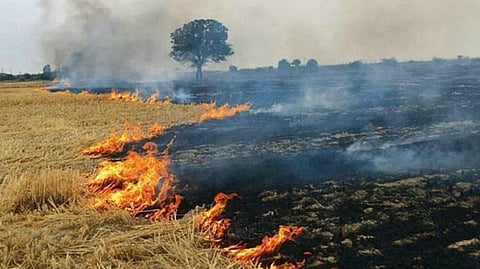

CHENNAI: The Indian Institute of Technology Madras (IIT Madras) Researchers have planned to develop an eco-friendly technology to upcycle paddy waste to manufacture raw materials for industrial applications.
The technology will provide an additional source of income to farmers as paddy waste can be used to produce energy devices that can be used by the industry.
This approach can make a key contribution to reducing stubble burning and burning of other farm waste in north India, a release from IIT Madras on Wednesday said.
The researchers are fostering a new ‘Farm-Energy Synergy’ through their work with organic waste, in-particular kitchen waste, to develop usable activated carbon, a key component in making supercapacitors.
Supercapacitors, made from activated carbon produced from paddy waste, have many benefits to consumers across the electronics, energy, and agricultural sectors and can help develop self-reliance in the supercapacitors field.
Self-reliance concerning supercapacitors and supercapacitor-based energy storage technology will enhance IP generation and employment within the country.
Currently, the sheer quantum of paddy waste generated is 760 lakh metric tons per year in India. Farmers consider burning straw as the most low-cost and efficient alternative to tailing the straw into the soil. This results in substantial pollution and a severe ecological problem.
Furthermore, burning reduces the potential utilization of biomass. The estimated loss for India alone is approximately Rs 92, 600 crore.
IIT Madras Researchers have already demonstrated the conversion of bio-waste into biomass (such as vegetable waste) to activated carbon and have used it to make supercapacitor electrode materials. The same technology can be adapted to render paddy waste valid for activated carbon production. The future plan is to use the approach being followed to make activated carbon and explore scales of production.
Visit news.dtnext.in to explore our interactive epaper!
Download the DT Next app for more exciting features!
Click here for iOS
Click here for Android